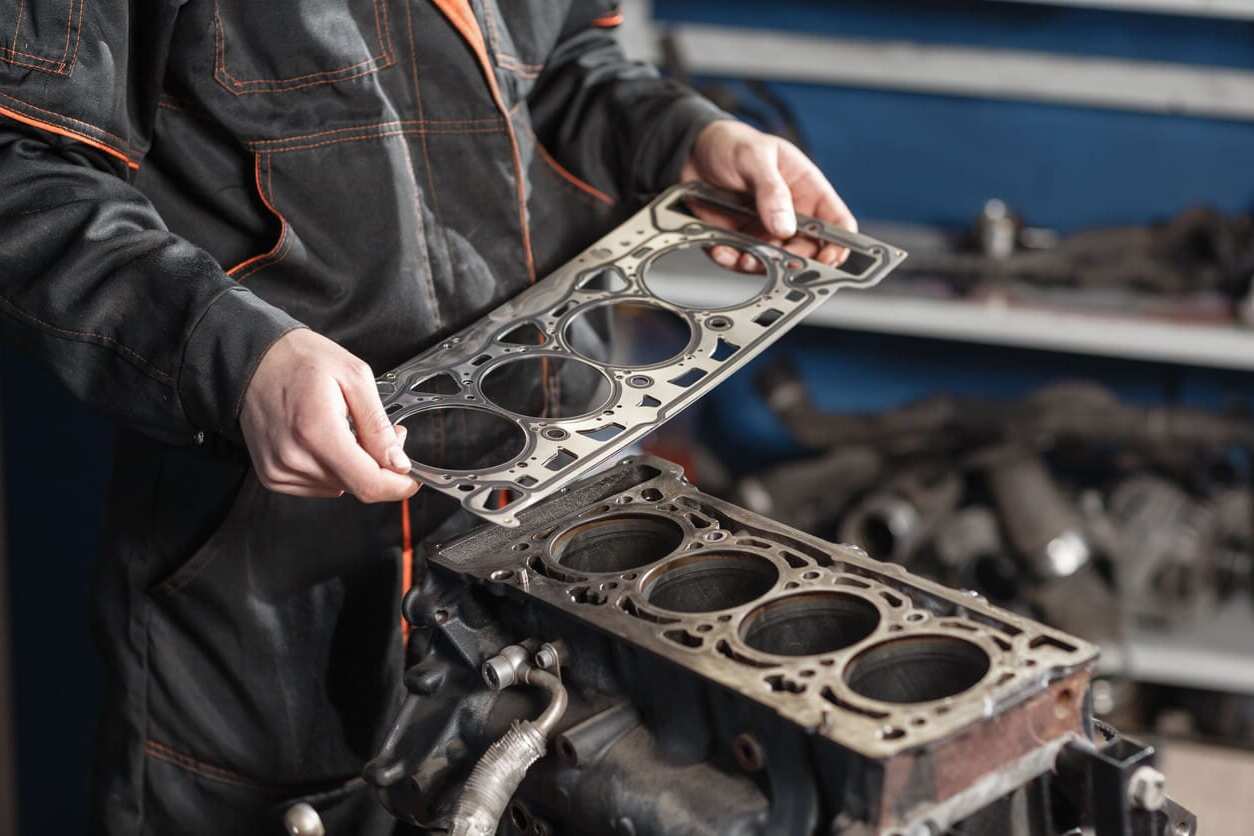
Gaskets might seem like simple pieces of material, but they play a crucial role in many machines and devices. These small components create a tight seal between two surfaces, preventing leaks of liquids or gases. Gaskets come in various shapes, sizes, and materials, each designed for specific applications. From car engines to household appliances, these seals ensure everything runs smoothly and safely. Ever wondered why your car doesn’t leak oil or why your washing machine doesn’t flood your laundry room? Gaskets are the unsung heroes making it all possible. Let's dive into 27 fascinating facts about these essential components that keep our world running smoothly.
What Are Gaskets?
Gaskets are essential components in various machines and devices. They create a seal between two surfaces, preventing leaks and ensuring smooth operation.
- Gaskets are typically made from materials like rubber, silicone, metal, and cork.
- They are used in engines, pumps, and other machinery to prevent fluid or gas leaks.
- The automotive industry heavily relies on gaskets for engine performance and safety.
- Gaskets can withstand extreme temperatures and pressures, making them versatile.
- They come in various shapes and sizes, tailored to specific applications.
Types of Gaskets
Different types of gaskets serve unique purposes. Knowing the types helps in selecting the right one for a specific need.
- Sheet Gaskets: Made from flat materials, these are cut to fit specific shapes.
- Spiral Wound Gaskets: These combine metal and filler material, ideal for high-pressure environments.
- Ring Gaskets: Often used in pipelines, they provide a tight seal.
- Kammprofile Gaskets: These have a metal core with a soft sealing material, used in heat exchangers.
- Jacketed Gaskets: Feature a soft filler material encased in a metal jacket, perfect for high-temperature applications.
Gasket Applications
Gaskets play a crucial role in various industries. Their applications are vast and diverse.
- Automotive: Used in engines, transmissions, and exhaust systems.
- Aerospace: Essential for sealing components in aircraft engines and systems.
- Oil and Gas: Used in pipelines, refineries, and drilling equipment.
- Food and Beverage: Ensure sanitary conditions in processing equipment.
- Pharmaceutical: Maintain sterile environments in manufacturing processes.
Importance of Gasket Maintenance
Proper maintenance of gaskets ensures longevity and efficiency. Neglecting them can lead to serious issues.
- Regular inspection helps identify wear and tear early.
- Replacing worn gaskets prevents leaks and machinery breakdowns.
- Proper installation is crucial for optimal performance.
- Using the right gasket material for the application extends its life.
- Keeping gaskets clean prevents contamination and ensures a good seal.
Innovations in Gasket Technology
Advancements in technology have led to improved gasket materials and designs. These innovations enhance performance and durability.
- Graphite Gaskets: Offer excellent thermal conductivity and chemical resistance.
- PTFE Gaskets: Known for their non-stick properties and chemical inertness.
- Metallic Gaskets: Provide superior strength and durability.
- Elastomeric Gaskets: Flexible and resilient, ideal for dynamic applications.
- Composite Gaskets: Combine different materials for enhanced performance.
Fun Facts About Gaskets
Gaskets may seem mundane, but they have some interesting aspects worth noting.
- The word "gasket" originated from the French word "gâchette," meaning a mechanical device.
- Some gaskets are designed to be reusable, reducing waste and cost.
Gaskets are more than just simple seals; they are vital components that ensure the smooth operation of countless machines and devices. Understanding their types, applications, and maintenance can help in selecting the right gasket for any need.
Gaskets: Small Parts, Big Impact
Gaskets might seem like simple components, but they play a crucial role in various industries. From sealing engines to ensuring the safety of food packaging, these small parts prevent leaks, maintain pressure, and keep contaminants out. Without them, many machines and systems would fail to function properly.
Understanding the different types of gaskets and their applications can help in selecting the right one for your needs. Whether it's a rubber gasket for plumbing or a metal one for high-temperature environments, choosing the correct material and design is essential.
Next time you see a gasket, remember its importance in keeping things running smoothly. These unassuming parts are the unsung heroes of many mechanical and industrial processes. So, appreciate the humble gasket for its significant contributions to our daily lives.
Was this page helpful?
Our commitment to delivering trustworthy and engaging content is at the heart of what we do. Each fact on our site is contributed by real users like you, bringing a wealth of diverse insights and information. To ensure the highest standards of accuracy and reliability, our dedicated editors meticulously review each submission. This process guarantees that the facts we share are not only fascinating but also credible. Trust in our commitment to quality and authenticity as you explore and learn with us.
